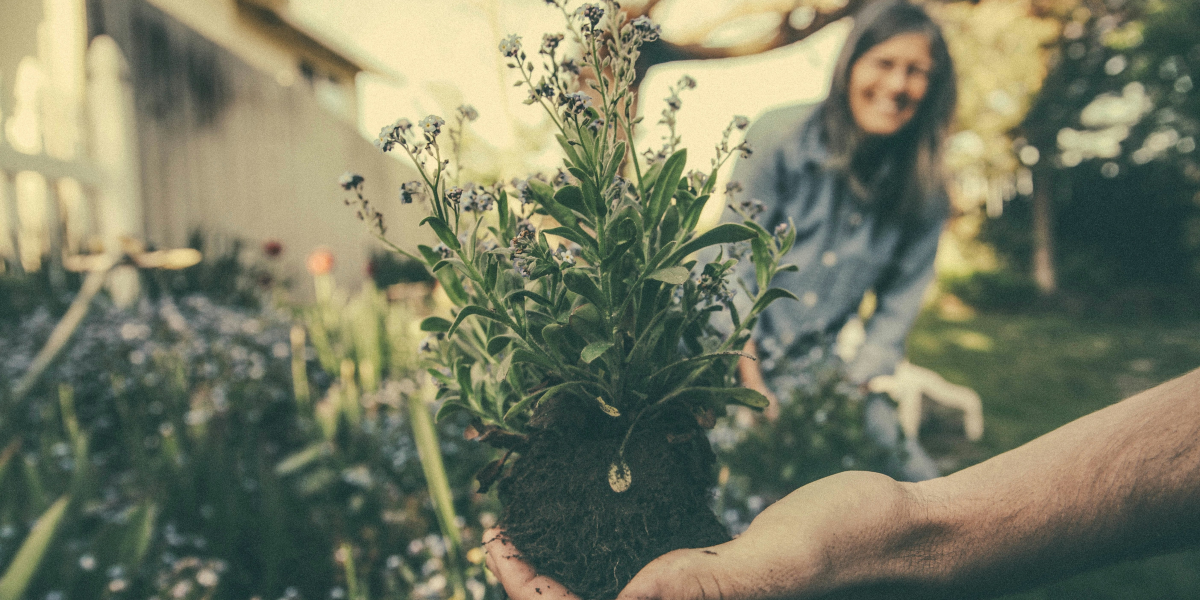Gardening offers more than just a chance to grow plants; it’s a rewarding hobby that promotes well-being and provides a fresh connection to nature. This article covers essential beginner tips for starting a gardening hobby, the basics of seasonal planting, and the mental health benefits of gardening.
Beginner Tips for Starting a Gardening Hobby
Starting a garden might initially feel overwhelming, but by breaking it down into manageable steps, anyone can begin to grow a beautiful garden.
Decide on Your Garden Type
The first step is choosing the garden type that best suits your space, climate, and time commitment. Consider whether you’d like to grow vegetables, herbs, flowers, or a mix.
For those with limited space, options like containers or vertical gardens allow flexibility and make starting with just a few plants easy. Your garden type will help shape your overall approach, from plant selection to care routines.
Choose Your Plants Wisely
Choosing beginner-friendly plants is crucial for early success. Start with low-maintenance plants that thrive in your area, such as herbs, leafy greens, or hardy flowering plants like marigolds. Each plant has different needs for sunlight, water, and soil type, so research their care requirements to avoid common mistakes. This step sets the foundation for a garden to grow strong, healthy plants.
Gather Essential Tools and Supplies
Having the right tools makes gardening easier and more enjoyable. At a minimum, invest in a sturdy trowel for digging, a watering can for easy watering, gardening gloves to protect your hands, and soil or compost that provides essential nutrients. Quality tools will last longer and reduce strain on your hands and back, ensuring you enjoy the process as your garden grows.
Prepare the Soil
Healthy soil is fundamental to successful gardening. Start by clearing debris or weeds, then add compost or organic matter to boost nutrient content. Testing the pH and structure of your soil can help you determine if any adjustments are needed. Good soil preparation will promote robust root development, which is key to plant health and growth.
Set a Regular Watering Schedule
Watering consistently is essential, especially when plants are most vulnerable in the early stages. Set a watering schedule based on your plants’ needs, which might vary with the season or weather conditions. Overwatering can lead to root rot, while underwatering can stunt growth. A light daily or deep watering twice a week for many gardens can strike the right balance.
The Basics of Seasonal Planting
Seasonal planting can be tricky, especially for beginners. However, understanding the basics can help gardeners grow more productive, seasonal plants year-round.
Learn Your Planting Zone
Knowing your USDA Plant Hardiness Zone can be transformative for gardening success. This zone guides which plants are likely to thrive in your climate and when to plant them. Consult zone maps and plant tags or seed packets to identify ideal growing seasons and avoid planting outside of a crop’s temperature tolerance, which can lead to poor yields.
Time Your Planting
Timing is everything when it comes to planting, as each plant has a preferred season. Early spring is often best for cool-season vegetables, while summer and fall suit warm-season crops. Following planting calendars or local growing guides can help maximize growth and avoid the risks of frost or extreme heat. This timing ensures your plants get the right conditions to flourish.
Rotate Your Crops
Crop rotation, or planting different types of crops in the same space from season to season, is an essential practice for healthy soil. Diversifying what’s planted prevents nutrient depletion and reduces pest buildup. For example, rotating between legumes, leafy greens, and root crops can improve soil fertility and keep plants thriving year-round.
How Gardening Supports Mental Well-Being
Research consistently shows that gardening is beneficial for physical health and can significantly boost mental well-being. Here’s how this simple hobby can support mental health:
Reduces Stress
Gardening can be a form of “natural therapy” by providing a calming environment. Tending to plants helps release stress, allowing individuals to unwind from daily pressures.
Improves Mood
Studies show that spending time outdoors, especially in green spaces, is linked to increased levels of serotonin and dopamine, helping to improve overall mood.
Promotes Mindfulness and Focus
Gardening requires focus and patience, encouraging mindfulness as gardeners nurture each plant. This focus can enhance mental clarity and reduce the effects of overthinking or anxiety.
Builds a Sense of Accomplishment
Gardening provides a tangible reward: watching plants grow from seedlings to mature plants brings a sense of achievement and satisfaction, which can elevate self-esteem.
Exploring the Benefits of Gardening
Gardening is an enriching activity that supports physical and mental health while adding beauty to your environment. Anyone can successfully start and sustain a fulfilling gardening hobby by following beginner tips, understanding seasonal planting, and embracing the mental health benefits.
(Disclaimer: The benefits mentioned in this article are based on general research, and individual results may vary.)
Published by: Annie P.














